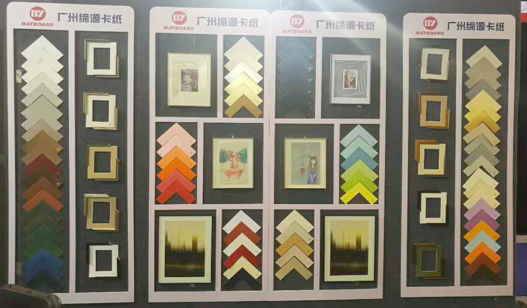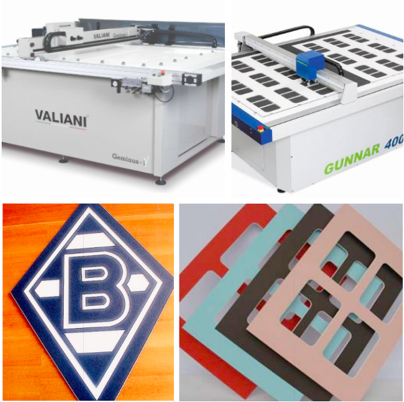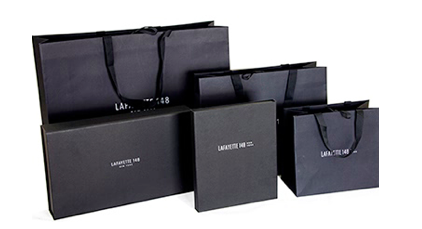Business
Know What Makes A Matboard Supplier for IKEA China Professional

IKEA is a Swedish furniture store. It is a multinational retailer of household goods. IKEA has branches in many countries around the world, selling flat-packed furniture, accessories, bathrooms and kitchen supplies as a pioneer in the sale of self-assembled furniture at reasonable prices and is currently the world’s largest furniture retailer.
Therefore, if other companies that want to cooperate with large-scale companies like IKEA must meet relatively high standards. As for matboards, what makes a matboard supplier for IKEA China professional?
As the biggest matboard manufacturer basement in China, DY Matboard has relatively good quality which can compare to US and Italian matboard. This stable quality requirement make us the unique matboard supplier to IKEA in China. The reasons why DY did it are as followed.
1. Supreme & environmentally-responsible raw materials
IKEA is always associated with improving people’s quality of life and adhering to the business tenet of “provide as many customers as possible, well-designed, well-functioning, low-cost household items”. While providing a wide variety of beautiful and practical household items that ordinary people can afford, IKEA strives to create a business model centered on customers and the interests of society, and is committed to environmental protection and social responsibility issues. The IKEA way of purchasing home furnishing products: IKEA’s policies on environmental protection and forest resources are very strict.
As a manufacturer that values environmental protection, DY uses acid-free paper and has passed FSC certificate successfully. The FSC is made up of representatives from environmental protection organizations, government forestry departments, local resident organizations, social forestry groups and timber product certification bodies from more than 70 countries. Its international center was originally located in the capital of Oaxaca, Mexico. FSC is a relatively mature and complete forest certification system.
DY insists on using acid-free paper. The PH of mat boards is 7.0 (neutral) or higher (alkaline) means they’re acid-free. Under normal conditions of use and storage, the life of acid-free paper can reach 200 years. Permanent paper can last for at least centuries without significant deterioration. The paper generally has a pH of 7.5 or higher and does not contain groundwood pulp, so it has high strength and high paper properties, and is suitable for people to use and store for a long time.The basis weight and color of the paper depend on the application. The paper is solid, strong and close to neutral. After special treatment (eliminating the organic acid present therein) from the plant fiber pulp, it is made on a paper machine.
2. World-class equipment & experienced technicians
DY also bring in the cutting machines from Italy (Valiani) and Netherland (Gunnar). For over several years, Valiani and Gunnar products have consistently reset the bar of excellence for precision cutting in the matboard and framing industries. DY has more than 20 Valiani and Gunnar cutting machines , Now we cut 150000 mat board sheets each day , have the largest production capacity in China.
The company has more than ten years of professional and technical personnel with strict production management team. The fully automatic computer cutting unit can perform pipeline management and control operations, and can produce 45 degree opening (forward and reverse bevel effect), single layer, double-layer, porous, and shaped mat boards can also be customized according to customer requirements.

3. Diverse applications
The mat boards can be used as delicate picture frames and decoration with diverse cuttings. DY offers uncut, precut and custom mat board at wholesale prices. A matboard manufacturer that often innovate and develop new products to meet the changing needs of the customers and looking for ways to elevate the industry, products and processes.

For example, black mat board features: fine paper, smooth surface and is robust. Applicable to clothing bags, gift boxes, clothing tags, shoe boxes and other packaging.
The New York brand Lafayette 148 clothing tote bag is made of black mat board, the paper bag is covered with embossing, which increases the three-dimensional and artistic atmosphere of the paper bag. The logo is white gold, with fine workmanship. The black bag is in line with the simple atmosphere of Europe and America.
Black cardboard is not suitable for color printing because it is black on both sides, usually using hot stamping. This Saatchi box body is only made of hot stamping in the LOGO. It is very simple, but it is also matched with black. It is very conspicuous. The carton is covered and embossed to give the entire carton a more fashionable feel.
The black color of black cardboard is a very solemn color, but it can make other colors stand out. We can often see the combination of black and bright colors, black cardboard is used in the packaging of business gift boxes because of its elegant color. DY offers mat boards with different colors and textures.
To be a professional mat board supplier off IKEA, the company must adhere to high standard and continues to develop itself. DY aims high and is ready to provide high-quality mat boards.
Business
Inside the $4.3B Quarter: What’s Fueling Black Banx’s Record Revenues

Every quarter brings fresh headlines in fintech, but few make the kind of impact achieved by Black Banx in Q2 2025. The Toronto-based global digital banking group, founded by Michael Gastauer, reported an extraordinary USD 4.3 billion in revenue and a record USD 1.6 billion in pre-tax profit, while improving its cost-to-income ratio to 63%.
These results not only highlight the company’s operational efficiency but also mark a pivotal moment in its journey from challenger to global leader. The big question is: what’s fueling such impressive financial performance?
Customer Growth as the Core Driver
One of the clearest engines of revenue growth is Black Banx’s expanding customer base. By Q2 2025, the platform had reached 84 million clients worldwide, up from 69 million at the end of 2024. This 15 million net gain in six months demonstrates both the attractiveness of its services and the scalability of its model.
Unlike traditional banks, which rely heavily on branch expansion, Black Banx leverages digital-first onboarding that allows customers to open accounts within minutes using just a smartphone. This approach is especially effective in regions underserved by legacy institutions, where access to affordable financial tools is in high demand.
More customers don’t just mean higher transaction volumes—they generate a compounding effect where network size, brand trust, and service adoption reinforce one another.
Real-Time Payments and Cross-Border Solutions
A major contributor to Q2 revenues is the platform’s real-time payments infrastructure. Black Banx enables instant cross-border transfers across its 28 supported fiat currencies and multiple cryptocurrencies, helping both individuals and businesses bypass the traditional bottlenecks of international banking.
For freelancers, SMEs, and multinational clients, this means faster liquidity, reduced foreign exchange costs, and simplified global operations. The demand for real-time financial services is growing rapidly—Juniper Research projects global real-time payments turnover to hit USD 58 trillion by 2028—and Black Banx is strategically positioned to capture a significant share of this market.
Crypto Integration as a Revenue Stream
Another key revenue driver is crypto integration. While many traditional institutions remain hesitant, Black Banx embraced digital assets early and has built infrastructure to support Bitcoin, Ethereum, and the Lightning Network. In Q2 2025, 20% of all transactions on the platform were crypto-based, reflecting strong customer appetite for hybrid banking services that bridge fiat and digital assets.
Revenue comes not only from transaction fees but also from value-added services like crypto-to-fiat conversion, staking yields (4–12% APY), and blockchain-enabled payments. For customers in markets with unstable currencies, these services act as a financial lifeline, further expanding the platform’s relevance.
AI-Powered Efficiency and Risk Management
Record revenues would be less impressive if costs ballooned at the same rate. But Black Banx has proven adept at balancing growth with efficiency. Its cost-to-income ratio improved to 63% in Q2, down from 69% a year earlier, thanks to heavy reliance on AI-powered automation.
AI now drives fraud detection, compliance, and customer onboarding—areas where traditional banks often struggle with cost inefficiencies. By automating these processes, Black Banx can process millions of transactions securely while maintaining profitability at scale. This level of efficiency is rare in fintech, where high growth often comes at the expense of margins.
Regional Expansion and Untapped Markets
Geography also plays a role in fueling revenues. Much of the Q2 growth came from Africa, South Asia, and Latin America—regions where demand for mobile-first banking continues to soar. In 2024 alone, Black Banx reported a 32% increase in SME clients from the Middle East and Africa, signaling the strength of its positioning in underserved markets.
By extending services to populations previously excluded from formal banking—migrant workers, rural communities, and small businesses—Black Banx taps into vast pools of latent demand. The strategy proves that financial inclusion and profitability are not mutually exclusive but mutually reinforcing.
Diversified Revenue Streams
Another factor behind Q2’s record revenues is Black Banx’s diversified business model. Income is not tied to a single service but spread across multiple streams, including:
- Transaction fees from cross-border transfers and payments.
- Crypto trading and exchange services.
- Premium account features for high-net-worth clients.
- Corporate services for SMEs and international businesses.
This diversification insulates the company against volatility in any single segment, creating stable revenue growth even in shifting market conditions.
Michael Gastauer’s Strategic Blueprint
Behind these results is Michael Gastauer’s long-term strategy: scale aggressively but with efficiency, innovation, and inclusion at the core. His vision has always been to create a borderless financial ecosystem, and Q2 2025’s performance is evidence that this vision is not only achievable but sustainable.
By balancing mass-market accessibility with premium features, and by blending fiat with digital assets, Gastauer has positioned Black Banx as a category-defining player in global finance.
The Road Ahead: Toward 100 Million Clients
Looking forward, the company’s goal of reaching 100 million customers by the end of 2025 will likely be the next catalyst for revenue growth. More customers mean more transactions, more data insights, and more opportunities to refine and expand its service offering.
If current momentum holds, the USD 4.3 billion quarterly revenue milestone could be just the beginning of an even larger growth story. The challenge will be ensuring systems scale securely while maintaining trust in an environment where privacy and compliance are paramount.
A Record That Signals More to Come
Black Banx’s Q2 2025 performance—USD 4.3 billion in revenue, USD 1.6 billion in pre-tax profit, 84 million clients worldwide, and a lean 63% cost-to-income ratio—is more than a financial milestone. It is a signal of how the future of banking is being rewritten by platforms that are borderless, crypto-inclusive, and data-driven.
What fueled this record-breaking quarter is not one innovation but a combination of strategies—scalable onboarding, real-time payments, crypto integration, AI efficiency, and expansion into underserved regions. Together, they form a model that doesn’t just challenge traditional banking but actively builds the foundation for global dominance.
For Black Banx, the road ahead is clear: the $4.3 billion quarter is not an endpoint but a launchpad for even greater scale and profitability.
-

 Tech5 years ago
Tech5 years agoEffuel Reviews (2021) – Effuel ECO OBD2 Saves Fuel, and Reduce Gas Cost? Effuel Customer Reviews
-

 Tech6 years ago
Tech6 years agoBosch Power Tools India Launches ‘Cordless Matlab Bosch’ Campaign to Demonstrate the Power of Cordless
-

 Lifestyle7 years ago
Lifestyle7 years agoCatholic Cases App brings Church’s Moral Teachings to Androids and iPhones
-

 Lifestyle5 years ago
Lifestyle5 years agoEast Side Hype x Billionaire Boys Club. Hottest New Streetwear Releases in Utah.
-

 Tech7 years ago
Tech7 years agoCloud Buyers & Investors to Profit in the Future
-

 Lifestyle5 years ago
Lifestyle5 years agoThe Midas of Cosmetic Dermatology: Dr. Simon Ourian
-

 Health7 years ago
Health7 years agoCBDistillery Review: Is it a scam?
-

 Entertainment6 years ago
Entertainment6 years agoAvengers Endgame now Available on 123Movies for Download & Streaming for Free
